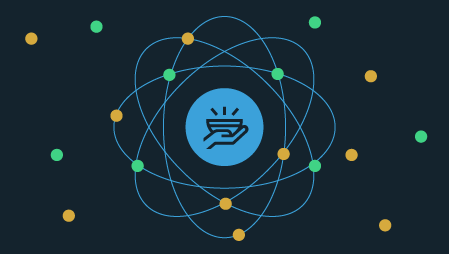Ready to learn Internet of Things? Browse courses like Internet of Things (IoT) Training developed by industry thought leaders and Experfy in Harvard Innovation Lab.
It’s easy to see why the advent of driverless cars will impact some industries. Car manufacturers, ride-hailing services, public transportation, car washes and parking garages will all go through some major shifts for obvious reasons.
However, driving cars is so ingrained in our society that, if we look hard enough, we can see the impact in all sorts of places. In addition to the clearly car-centric sectors, various other industries will be affected as well. And many of these sectors will get a considerable boost.
1.Real Estate
As autonomous cars become more common, analysts expect the rate of vehicle ownership to drop as more people opt for using shared, driverless vehicles. Reduced car ownership could cut the need for parking lots in half, opening up approximately 75 billion square feet for new uses and dramatically increasing opportunities for developers and real estate agents.
Driverless cars will also make commuting less stressful, which could lead to more people opting to live outside of cities, and perhaps making location a less important factor in choosing a place to live or open a business.
2.Event Planning and Hosting
As traveling becomes less of a hassle, more people may start making their way out for events from holiday celebrations to sports matches to business conferences. The Internet reduced the need for people to physically attend meetings. Driverless cars may make it a more attractive option again.
As more people want to attend events, those who plan them and own spaces that host them will have more clients on their hands. Once people are out at these events, they’re more likely to make purchases there and patronize nearby businesses, leading to overall economic growth.
3.Media and Entertainment
Once people no longer have to focus on driving when they’re in the car, how will they spend their commute? Many of them will likely turn to online media and web browsing. They could spend their time streaming movies and TV shows, shopping online, browsing social media and doing a host of other things, creating more of a demand for media and more opportunities for advertisers.
This extra browsing time could give the economy a substantial boost, too. According to a McKinsey and Company report, that in-car browsing could generate $5.6 billion per minute for web-based businesses, as well as vehicle manufacturers and their hardware and software suppliers.
4.Cybersecurity
As more and more of our devices rely on the Internet, cybersecurity will continue to become a more pressing concern. Cybersecurity risks surrounding autonomous vehicles are especially concerning. If a hacker could infiltrate a vehicle’s computer, they could steal data, as well as cause serious physical harm to people.
Cybersecurity experts will have no shortage of opportunities for the foreseeable future. They’ll be a crucial part of designing car computer systems and will have to update them vigilantly as hackers come up with new ways to break in.
5.Package Delivery
Delivering all sorts of goods will become more convenient with the rise of driverless cars. Cross-country trucking, as well as local delivery, will see the impact. McKinsey and Company estimates autonomous vehicles will result in $100 to $500 billion annually in economic gains for the trucking industry by 2025.
Since autonomous vehicles are so intertwined with GPS, it’s not hard to see how these technological breakthroughs will also allow the trucking industry to take advantage of the benefits of GPS tracking, such as more efficient fleet management and improved customer service. Unfortunately, this shift will cause many trucking and delivery companies to reduce their workforces. While demand for delivery services may increase along with productivity, some sectors will still see a reduction in employment.
6.Restaurants
Delivering food will also become more convenient and affordable for customers and restaurants, as well as grocery stores. Restaurants that deliver will no longer have to pay delivery drivers, and patrons will no longer need to tip them. Employment in this industry might go down slightly — but, on the other hand, driverless cars might also lead to increased demand for food deliveries, meaning a need for more staff in the kitchen.
Customers may order more food to go, including menu items that typically take longer to make, because they can easily order and pick up the food ahead of time. Conversely, the elimination of the hassles of driving and parking may inspire some to eat out more.
7.City Planning
Driverless vehicles won’t just alter certain sectors of the economy. They’ll also enable us to redesign entire cities. The design of most urban and suburban areas evolved with drivers in mind, but widespread autonomous vehicle adoption will change many of these needs.
Self-driving cars will greatly reduce the importance of parking and traffic issues, and proximity will become less of a concern when siting. Urban planners will have to navigate these changes, optimize cities for this new way of getting around and avoid issues like urban sprawl, which experts say autonomous cars could increase.
Driving a car is such an integral part of our day-to-day lives, it’s hard to imagine a part of it that autonomous vehicles won’t affect, at least in some subtle way. Driverless cars are bound to change not only the automotive industry but revolutionize our daily lives, as well.



